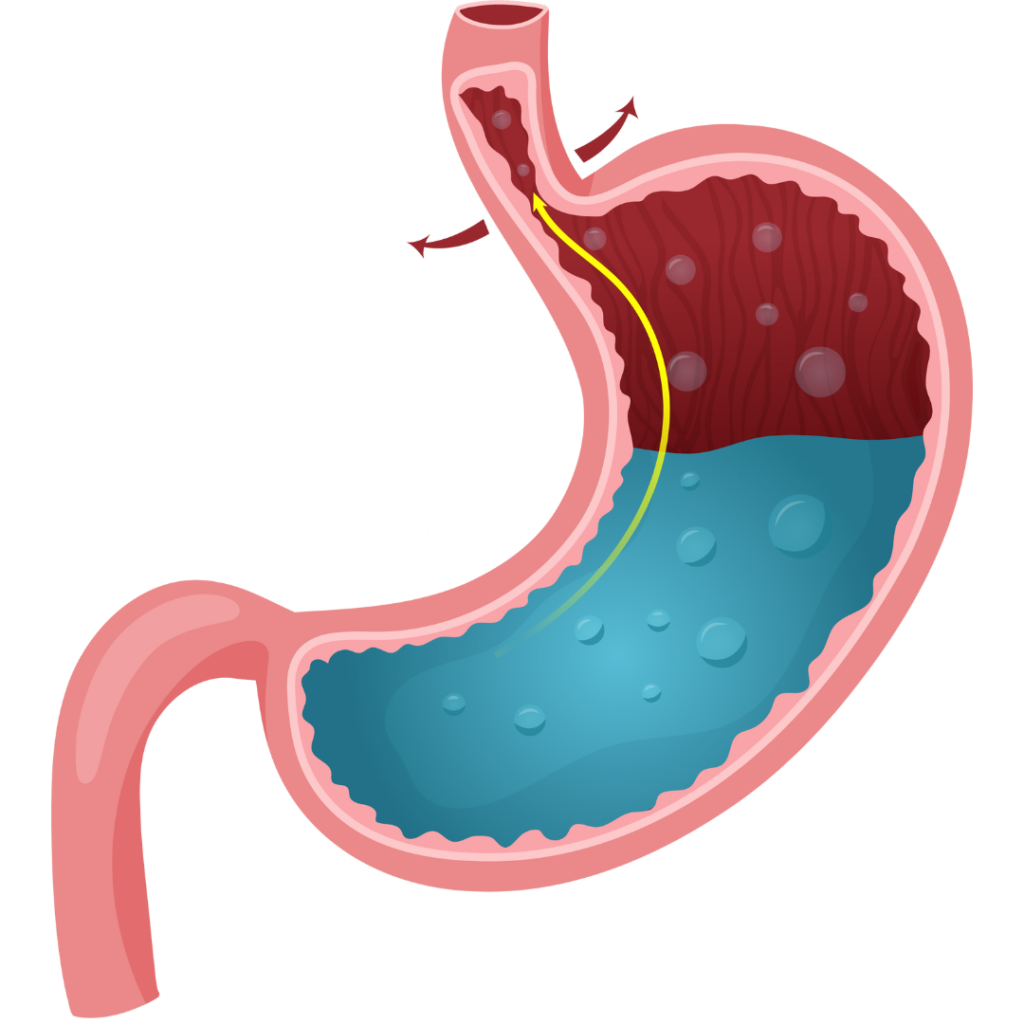Gastroesophageal Reflux Disease (GERD)

Overview
When stomach acid flows back into the tube connecting your mouth and stomach on a regular basis,it causes gastroesophageal reflux disease (GERD) of the esophagus. This backwash may irritate your oesophageal lining (acid reflux).
Many people occasionally have acid reflux. However, if it happens regularly over time, persistent acid reflux may eventually cause GERD.
The majority of people can control their GERD symptoms by making lifestyle modifications and using medications. Even though it’s uncommon, some patients could need surgery to get their symptoms under control.
GERD Causes
Although GERD has no single known cause, there is a biological system that when it isn’t working properly, can raise the risk of it.
Your oesophagus ends in a band of muscle known as the lower esophageal sphincter (LES). When it’s functioning properly, it opens and relaxes when you swallow. It then tightens and closes once again.
When your LES doesn’t tighten or close completely, acid reflux occurs. This allows stomach contents and digesting fluids to ascend up your oesophagus.
Additional root causes include:
Too soon after a huge meal, lying down – Additionally, this can produce less pressure than the LES needs to function properly.
Eating a lot of huge meals. The top section of the stomach may become distended as a result of this. This distension may be an indication that there is not enough pressure on the LES for it to close properly.
Hiatal hernia. When a section of the stomach rises and moves toward the chest, this happens. A damaged diaphragm increases the likelihood that your LES won’t perform as intended.
Symptoms Of Gastroesophageal Reflux Disease (GERD)
The most prevalent symptom of GERD is heartburn (acid indigestion). A scorching chest discomfort that begins beneath your breastbone and travels up to your neck and throat is how it typically feels. Many claim that they get an acidic or bitter sensation in their mouths, as if food is returning.
Symptoms of heartburn, such as burning, pressure, or pain, may persist for up to two hours. It generally gets worse after eating. Leaning over or lying down can also give you heartburn.
If they stand up straight or take an antacid that clears acid out of the oesophagus, many patients feel better.
There are differences between the pain of heartburn and the agony brought on by heart disease or a heart attack., but this happens occasionally. Pain from a heart illness might be relieved by rest, but it can get worse with exercise.
Physical activity is less likely to cause heartburn pain. But you can’t tell the difference, so if you get any chest pain, get medical attention right away.
In addition to pain, you might also
- Vomiting
- erosion of dental enamel
- feeling of a throat lump
- Swallowing
- poor breath
- Nausea
In addition to acid reflux at night, you might also experience:
- abrupt onset or worsening of asthma
- a persistent cough
- issues with sleep
GERD Diagnosis Of Gastroesophageal Reflux Disease (GERD)
You may require testing for a more accurate diagnosis if you have severe, persistent esophageal reflux or if your symptoms don’t improve with treatment.
Your doctor might use any of the following methods:
- Endoscopy
- Upper GI series
- Esophageal manometry and impedance study
- pH testing

Tretment Of Gastroesophageal Reflux Dsease (GERD)
It’s possible that your doctor may advise you to start with nonprescription drugs and lifestyle modifications. If you don’t feel better after a few weeks, your doctor might advise taking a prescription medicine and getting more tests done.
non-prescription medications
- Antacids that neutralize stomach acid.
- Medications to reduce acid production.
- drugs that stop the generation of acid and treat the oesophagus.
non-prescription medications-
- Proton pump inhibitors with prescription strength
- pharmaceutical-grade H-2 blockers
When to see a doctor
Get emergency medical care if you experience chest pain, especially if you also experience breathing problems, arm or jaw pain, or shortness of breath. These could be heart attack warning signs and symptoms.
Schedule a visit with your physician if you:
- GERD symptoms that are frequent or severe
- more frequently than twice a week, take over-the-counter medicines for heartburn.
